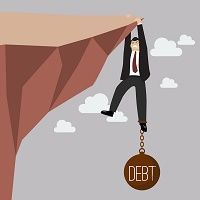- Revenue Cycle Management
- COVID-19
- Reimbursement
- Diabetes Awareness Month
- Risk Management
- Patient Retention
- Staffing
- Medical Economics® 100th Anniversary
- Coding and documentation
- Business of Endocrinology
- Telehealth
- Physicians Financial News
- Cybersecurity
- Cardiovascular Clinical Consult
- Locum Tenens, brought to you by LocumLife®
- Weight Management
- Business of Women's Health
- Practice Efficiency
- Finance and Wealth
- EHRs
- Remote Patient Monitoring
- Sponsored Webinars
- Medical Technology
- Billing and collections
- Acute Pain Management
- Exclusive Content
- Value-based Care
- Business of Pediatrics
- Concierge Medicine 2.0 by Castle Connolly Private Health Partners
- Practice Growth
- Concierge Medicine
- Business of Cardiology
- Implementing the Topcon Ocular Telehealth Platform
- Malpractice
- Influenza
- Sexual Health
- Chronic Conditions
- Technology
- Legal and Policy
- Money
- Opinion
- Vaccines
- Practice Management
- Patient Relations
- Careers
5 Simple Steps to Paying Down Debt
One of the key obstacles to a good saving and investing strategy is accumulated debt. Debt can impact healthcare professionals of all ages and at all stages in their careers.

One of the key obstacles to a good saving and investing strategy is accumulated debt. Debt can impact healthcare professionals of all ages and at all stages in their careers. There are times when paying down debt can and should take precedence over saving for your future, but that isn’t always the rule. Let’s take a look at some strategies for getting to a more manageable debt load.
Consolidation is one way to rid yourself of your debts quickly by combining all your current outstanding loans and liabilities—and their potentially outrageous interest rates—into a single debt vehicle with a lower interest rate. Peace of mind, earlier payment, and simplicity are among the many reasons to consider debt consolidation. And it may be easier than you think.
Step 1: Assess your debt situation.
You may think your debt is under control, or alternatively you may try not to think about your debt at all. But if you regularly use credit cards or lines of credits to meet basic monthly expenses, if you buy items on credit that you wouldn’t buy if you had to pay cash, and if you are at your credit limits and thinking about extending your borrowing capacity, you may want to look closely at your spending habits and make an important adjustment.
Step 2: Identify “good” and “bad” debt. Stand pat on the former, and address the latter.
Mortgage debt that is less than a quarter of your gross income is unlikely to be “bad” debt, unless you are paying an out-of-market interest rate for some reason. But credit cards in the tens of thousands of dollars should be paid off as soon as possible, because they will cost you in the long run.
Step 3: Create or adjust your budget.
Sound familiar? The budget is the lynchpin for all of your financial endeavors. If you’re in debt, it’s even more important to identify how much income you have and where it’s going. Finding out exactly what you spend each month can be a big part of identifying areas that need to be cut back if you’re going to get out of debt.
Step 4: Look into a consolidation loan.
Research interest rates of credit providers, including banks (and starting with the bank where you are a customer), and consider working with a financial advisor who can offer some tips. You’ll need some financial information, including updated credit card statements, pay stubs, and lists of investments. Shop around, and find out how much you can borrow and what the terms are for paying it back.
Step 5: Pay off your debt, and don’t accumulate new debts.
Start making the bulk of your payments to your highest interest rate debt first. Then, move on the next set of debts. Make sure you don’t pay one debt exclusively while letting the others languish, as this will negatively impact your credit rating. In the meantime, make sure you aren’t accumulating new debt, as it will completely counter your strategy.
Start Immediately, But Don’t Expect Immediate Results
Just as with your savings and investment strategies, starting sooner rather than later will yield better results. But don’t be impatient about paying down your debt. Chances are you accumulated it over many years, and you can’t expect to be rid of it in an instant just because you started focusing on it. Chip away as you can, and put any extra income or found money toward your debt whenever possible.
Before you know it, you will be able to transition those funds to retirement savings and investments.
